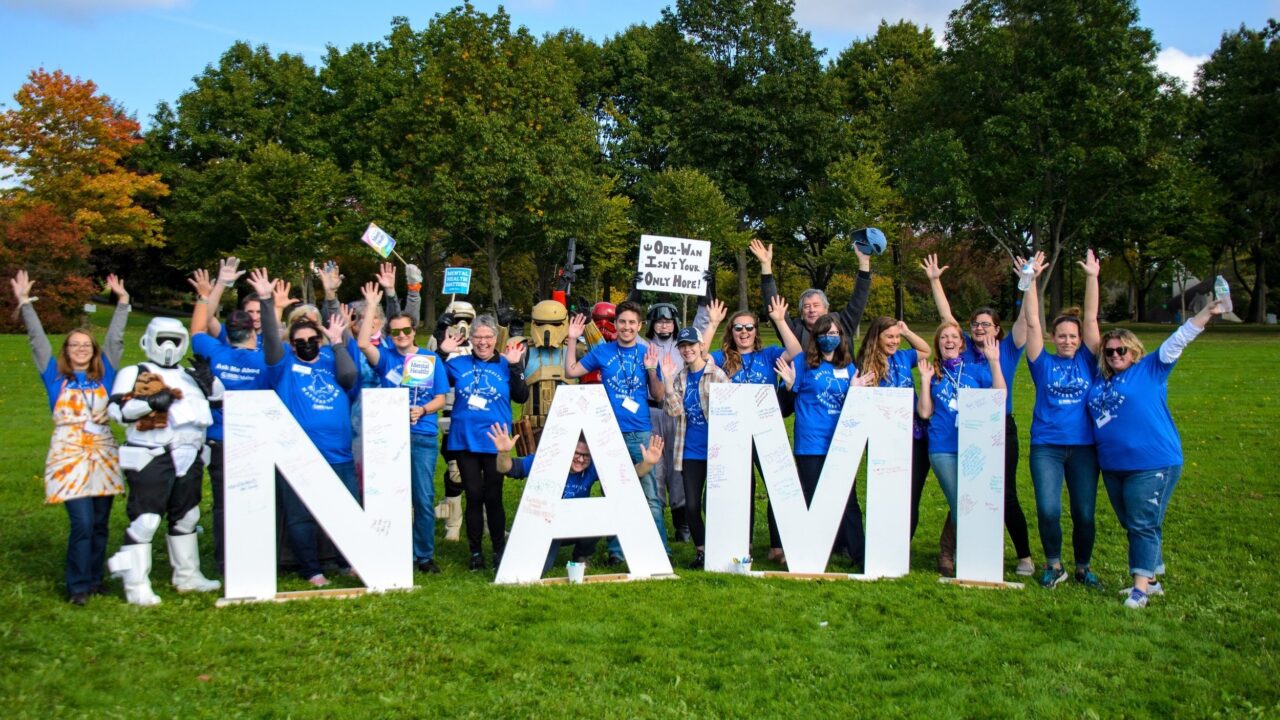
CIT is a collaborative approach to support individuals in the community struggling with a mental health challenge or crisis.
The Crisis Intervention Team (CIT) Program develops a network of relationships between law enforcement, mental health providers, peers, families, and advocates to effectively produce a community-wide crisis response.
Law enforcement takes on a supportive role to the mental health system by connecting individuals to community resources, reducing injuries and trauma to individuals experiencing a crisis, while diverting them from the criminal justice system.

CIT is a program, that when effectively implemented in communities, has 4 goals:
- To improve safety during law enforcement encounters with people experiencing a mental health crisis, for everyone involved.
- To increase connections to effective and timely mental health services for people in a mental health crisis.
- To use law enforcement strategically during crisis situations – such as when there is an imminent threat to safety or a criminal concern – and increase the role of mental health professionals, peer support specialists, and other community supports.
- To reduce the trauma that people experience during a mental health crisis and thus contribute to their long-term recovery.
- Research supports that when implemented with fidelity as a community program, these goals are achieved throughout communities.


CIT Officer Kailyn Sawyer of the Kennebunk Police Department with K9 Unit Otto
In order to effectively implement the CIT program in communities, a network of relationships must be developed by law enforcement, mental health providers, peers and family, and advocates in order to effectively produce a community-wide response and develop a robust crisis system. The intent of CIT is to build a system and community in which law enforcement takes on a supportive role to the mental health system and community resources.
CIT consists of core elements that contribute to the leading goals of reducing injuries to individuals and officers and diverting individuals with mental health concerns from the criminal justice system to the healthcare and mental health care system. This includes developing strong relationships and partnerships in order to develop systems and resources that meet the unique needs of the communities through regional councils. Developing policies and procedures at various levels to support individuals experiencing a mental health crisis or challenge. Implementing data collection procedures to track the effectiveness of interventions and resources and identifying areas of need or gaps within systems.

CIT training for first responders, including dispatch and emergency medical services, consists of an initial 40 hour training as well as on-going trainings with updated information that target the needs of the area. The final component of CIT is recognition of the community and law enforcement responses and celebrating the work that is being accomplished by those parties. It is important that CIT recognizes the work being completed by the partners on the front lines, and the quality of life improvements being made by the dedicated community members.


History & Facts
CIT was founded in 1988 in Memphis, TN following a high profile shooting of a young man experiencing a mental health crisis. The Memphis Police Department then reviewed use of force incidents leading to the shooting and found that mental health crises frequently were linked to use of force. Memphis Police then partnered with NAMI Memphis, the University of TN at Memphis, and the University of Memphis to develop a comprehensive and collaborative approach to supporting individuals experiencing a mental health crisis. CIT International now refers to this as a 5-legged stool in which there equal importance is placed on:
- police training
- community collaboration
- a vibrant and accessible crisis system
- behavioral health staff training
- family, peer, and advocate involvement


Today, CIT is implemented in 2,000 communities across 40 states. Maine is one of 7 states that has implemented the CIT program statewide and is considered in the top-tier of community program implementation. Maine was able to implement CIT following the receipt of a grant in 2000. The initial program in Maine was implemented with the Portland Police Department, NAMI Maine, Ingraham Crisis Services, and Spring Harbor Hospital. Since that time NAMI Maine has been the leader in CIT implementation including adapting CIT to rural communities and to correctional settings.
NAMI Maine was the recipient of the 2007 SAMHSA Science to Service Awards due to the implementation of CIT across the state.

Additional Information About CIT:
Core Elements of the CIT Program
CIT: A Best Practice Guide for Transforming Community Responses to Mental Health Crises
CIT Methods for Using Data to Inform Practice: A Step-by-Step Guide
For more information on the Crisis Intervention Team program, contact us by calling (207) 622-5767 x 2312 or emailing mhfa@namimaine.org.

Related Videos
For Participating PDs


CIT Sergeant Dana Wessling of the Monmouth Police Department
Upcoming Trainings
Crisis Intervention Team Training is one component of the CIT Program. The training component consists of 40 hours of training for first responders to increase their understanding and knowledge in responding to calls involving a mental health crisis. Trainings are delivered regionally with subject matter experts in various areas providing knowledge and understanding regarding different presentations and areas, as well as the ability to continue as an on-going contact and resource for officers in the area.
The CIT training course also includes visits to various community resources and agencies within the area to provide officers with a better understanding of the mental health system, different levels of care and intervention. These site visits also increase resources for officers to connect individuals in their communities with.
Officers also hear from individuals who are willing to share their stories and experiences in living with a mental health challenge and answer questions. De-escalation Training and role playing exercises are completed utilizing the only Bureau of Justice Approved de-escalation curriculum with an approved instructor.
Following the training, first responders will have not only an increased knowledge and understanding of the mental health system, but also contacts and resources to support individuals in their communities more effectively. The training course provides opportunities for officers to build relationships and collaborations within the communities they serve. When implemented effectively, the CIT program has been shown to reduce rates of injury during police calls as well as the number of individuals experiencing a mental health crisis who are incarcerated.











